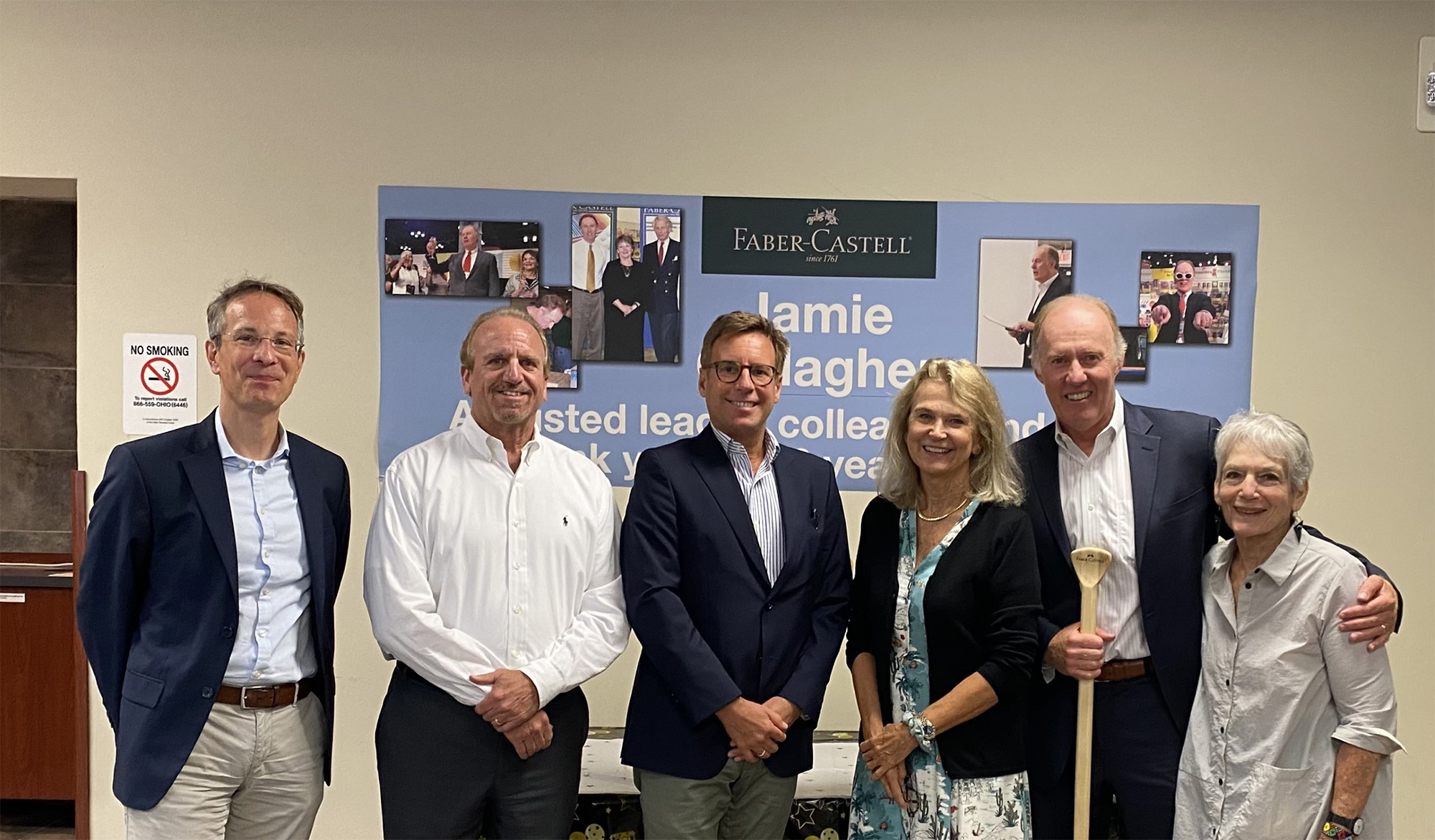Retire Early… and Often

We retire once in our lifetime. Why not Retire Early and Often? At least as a mindset and set of behaviors.
Some months ago, the Faber-Castell USA team, including members of our Executive and Supervisory Boards from Germany (Stefan Leitz, Countess Mary Faber-Castell, Constantin Neubeck) organized a “farewell send-off” to celebrate my retirement after 20 years leading the team here in Cleveland. This was my first “retirement party” and I didn’t walk in the room purposefully trying to learn anything.
But on that day the lesson was crystal clear though not revolutionary.
The essence of work is relationships and the fulfillment (even more so than just success) people can achieve together. On that day, we didn’t cite sales and profit numbers, show PowerPoint charts tracing the path of our brand strategy, or pinpoint the years when we gained new business— although those were important efforts over the years.
We did watch a video of goodbyes, laughs, and stories.
We did say thank you, shed tears, and hug— a lot.
Twenty years with Faber-Castell Group-Castell and sixteen years with the LEGO Group. All 36 years came back into focus, and the spotlight shined on the people, relationships, battles, trips, laughs, stories, collective wins, and bitter defeats— together.
This realization is not new, it has been written countless times, lectured around the world, and appeared in numerous posts in various social networks. But we are busy people with lists to check-off, metrics to track and results to deliver. Is it possible to “know it” but not “get it”? I think it is.
So, on to the next chapter and challenge, my learning is this: Push ourselves to reflect regularly as if it is now over. Get in sync with what is being felt and experienced by our teams and colleagues (friends and family?). What if the “sendoff and farewell mindset” guided us as leaders (friends, parents) to become more vulnerable, empathetic, humble, focused and appreciative?
What if we didn’t wait for the video, the speeches, and the cake?
What if we “retired early and often”?